By: John E. Peck, executive director of Family Farm Defenders
(forthcoming article in the Fall 2020 FFD Newsletter)
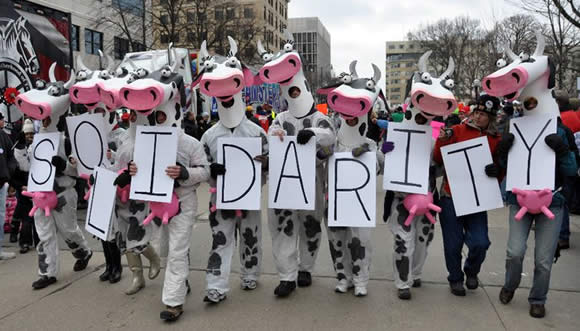
With a critical election on the near horizon, many media pundits (and online bots) have been busy fanning the flames of the U.S. rural urban divide. The politics of resentment are certainly genuine and worth understanding – a challenge UW-Madison Prof. Katherine Cramer tackles in her book by the same name. The specter of a global pandemic on top of systemic racism in early 2020 exposed many of the deep divisions and chronic inequities in our society, but at the same time facing down this twin-headed threat has brought communities together. That is because peoples’ concerns often overlap – regardless of history or geography – and when one recognizes that reality amazing things can happen. With sufficient empathy, trust, and creativity one can cultivate solidarity out of crisis and chaos.
Just to use my home state as an example, rural and urban folks across WI have many more mutual interests than contrived differences. Relatives and friends of Jacob Pero on the Bad River Reservation, of Tony Robinson from Madison’s East Side, or of Jacob Blake in Kenosha’s Wilson Neighborhood have all been forced to confront and challenge the deadly consequences of police brutality. The rural family in Kewaunee or Lafayette County who’s well water is poisoned with factory farm manure runoff can relate to an urban family in Milwaukee County who’s tap water is also toxic due to unmitigated lead contamination. Lack of internet can be just as frustrating and disempowering for a family needing basic social services or doing virtual school classes no matter one’s address. Rural and urban folks are just as keen to have universal public healthcare, affordable housing options, reliable postal delivery, healthy local food, the list goes on and on. And when corrupt elected officials and greedy corporate executives collude to starve/sabotage and outsource/privatize such, people are bound to resent and resist this latest enclosure of our common wealth and natural heritage.
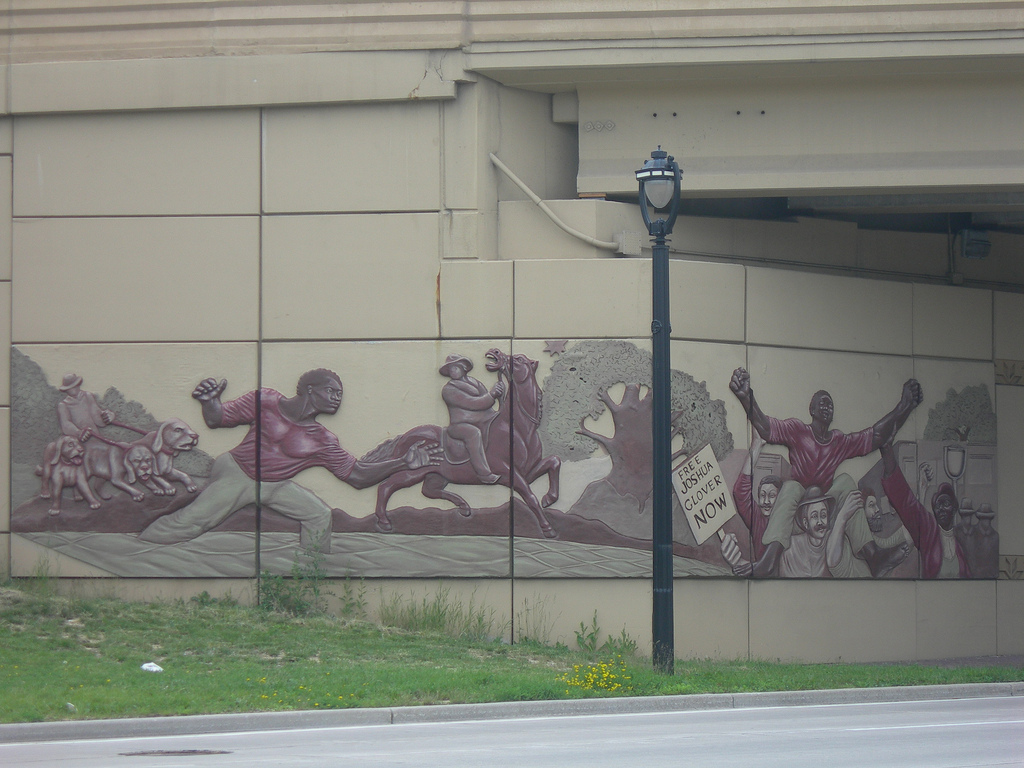
In this tough times, it is worth taking a moment to reflect upon and find heart in earlier episodes of grassroots solidarity that permeate our people’s history (thanks Howard Zinn!). Every place has such an inspiring legacy – I will share some of my WI favorites. When Joshua Glover was kidnapped by “slave catchers” in Racine back in 1854 and then taken in chains to the Milwaukee County Jail by federal marshals under the Fugitive Slave Act, who knew that hundreds of angry abolitionist immigrant farmers would promptly march on the city from surrounding counties, batter down the jail door, and then hide Glover for days on their homesteads until he could secretly board a Lake Michigan steamer bound for freedom in Canada. The Wisconsin Underground Railroad would save many others fleeing bondage in the years leading up to the Civil War – for more on this saga, check out the book, Finding Freedom by Ruby West Jackson and Walter T. McDonald.
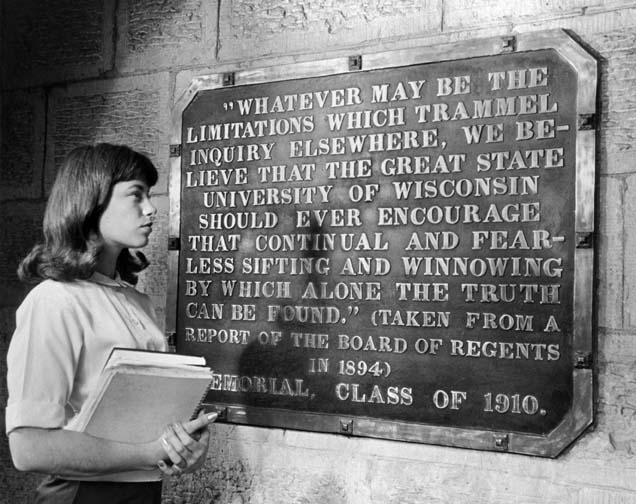
When seven people were killed in Milwaukee in May 1886 by National Guard troops as part of the nationwide eight hour day struggle (now known as the Bayview Massacre), popular support for labor rights quickly spread across the state – leading to more strikes in the mills in Oshkosh, in copper mines and lumberjack camps in the North Woods, as well as in factories in Madison. Many UW students and faculty openly supported such labor struggles, leading to an elite backlash and a crude effort to fire one outspoken professor, Richard Ely. Fortunately, the UW Board of Regents rejected this idea and instead issued the now famous 1894 statement enshrined on Bascom Hall: “Whatever may be the limitations which trammel inquiry elsewhere, we believe that the great state University of Wisconsin should ever encourage that continual and fearless sifting and winnowing by which alone the truth can be found.”
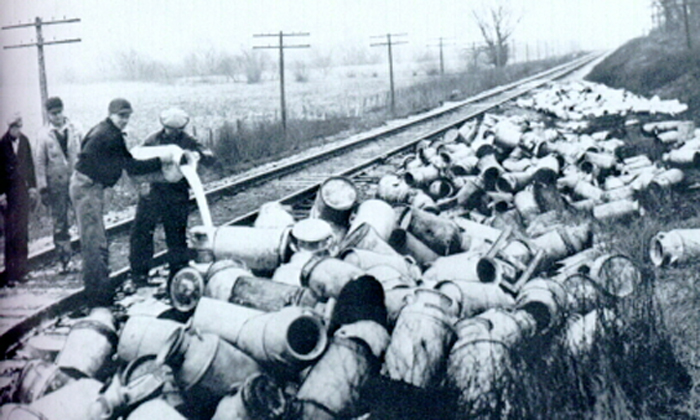
The 1930s Great Depression and Dust Bowl generated more solidarity. The acclaimed conservationist, Aldo Leopold, organized desperate farmers and unemployed workers to restore eroded watersheds and reforest denuded landscapes across the Driftless Region – and the amazing consequences of this effort remain evident in places like Coon Valley today. Under the New Deal, farmers and consumers formed hundreds of cooperatives as an alternative to corporations to provide goods and services at cost (with no profit motive) to their members. Wisconsin today remains one of the nation’s epicenters for successful cooperative development. In 1933 when WI dairy farmers went on strike to demand a fair (parity) price for their milk, they were supported by urban allies who helped intercept clandestine milk shipments that were then dumped along the railroad tracks. Such rural protests had already spread across the country and compelled FDR to pass the Agricultural Adjustment Act – one of his first New Deal programs – establishing a federal market price for basic agricultural commodities and setting a precedent for farmer-controlled supply management – which, sadly, has yet to be realized.
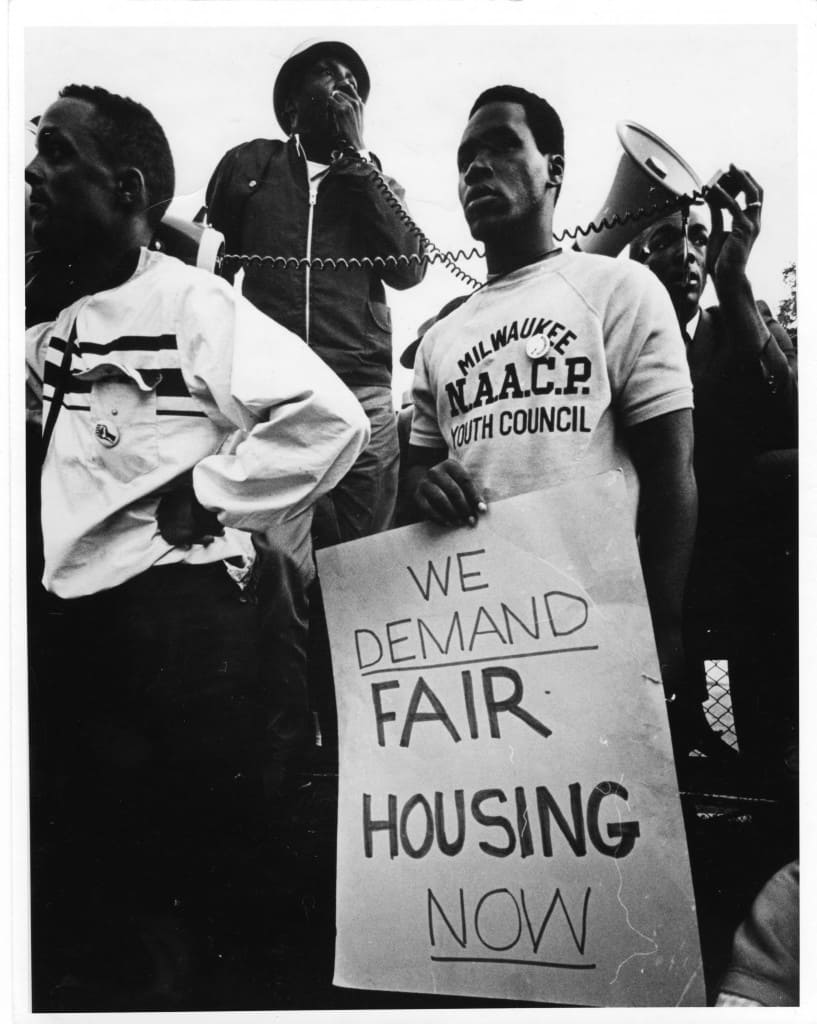
Fast forward to the 1960s – and, once again, Wisconsinites from all walks of life worked together to demand racial justice. John Kinsman, an organic dairy pioneer near Lime Ridge and founder of Family Farm Defenders, started Project Self Help and Awareness to foster inter-racial exchanges between rural farm kids in WI and their counterparts in MS. These relationships flourished over decades, leading directly to 2006 when WI farmers delivered a dozen donated tractors and other implements to their colleagues with the MS Association of Co-ops to help them recover from Hurricane Katrina. When Obreros Unidos organized a migrant farmworker march from Wautoma to Madison in 1966 they found much support in small towns along the way – the same was true when Father Groppi organized a “Welfare Mothers” march from Milwaukee to Madison in 1969. In the 1980s when native folks were under attack by racist hate groups for exercising their treaty rights, a diverse WI coalition emerged to bear witness at the boat landings and engaged in constructive dialogue and popular education to shift broader public opinion. For more on these episodes of unity in struggle, read Patrick Jones’ book, Selma of the North, and Rick Whaley/Walt Bresette’s book, Walleye Warriors.

Without this tradition of solidarity, we would have never experienced the historic Capitol Occupation and statewide Cheddar Uprising of 2011, which culminated in the state’s largest protest ever on Sat. March 12th – when 150,000+ people gathered to greet the Pull Together Farmer Labor Tractorcade in support of collective bargaining rights and against austerity budget cuts. Nor would we have seen groups like Family Farm Defenders and Wisconsin Farmers Union standing with Voces de la Frontera in 2017 to say “No Hate in the Dairy State” and publicly oppose ICE efforts to detain, abuse, and deport undocumented farm/food workers that are now such a vibrant and integral part of our society.
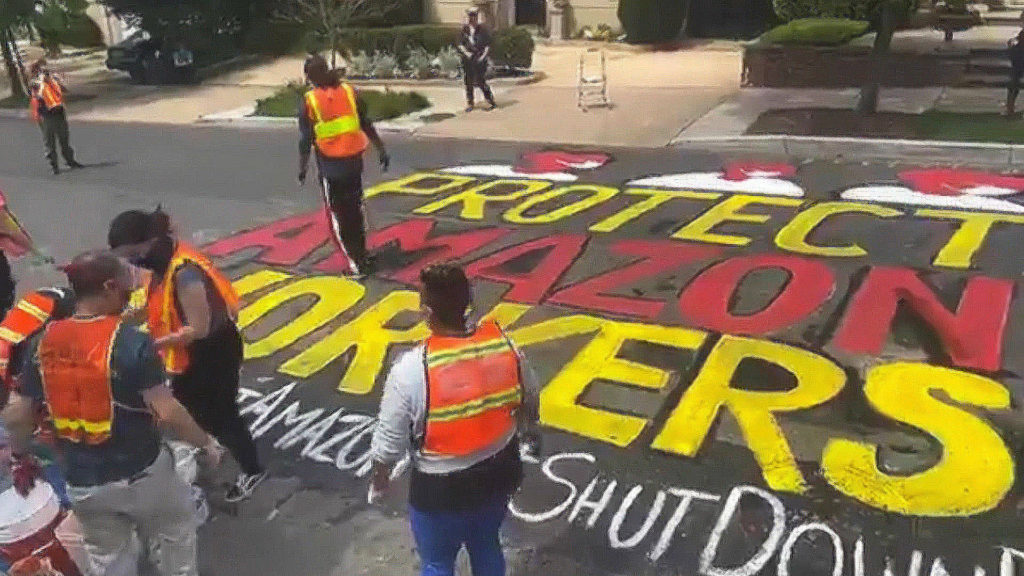
The brittle vulnerability of corporate agribusiness was one of the first supply shocks felt by many as the pandemic came to grip the world in early 2020. Streams literally ran white as farmers were forced to dump their milk without any buyers and piglets were euthanized in their pens as packing plants cancelled their contracts, while still forcing their sick employees to show up for work or get fired. Meanwhile, bigbox retailers were rationing their inventory, limiting consumer purchases to one gallon of milk and one pound of bacon at a time. As online sales jumped, Amazon workers were expected to work even harder on behalf of the world’s richest billionaire, Jeff Bezos. For many, the abusive treatment and crass exploitation of essential workers was simply intolerable. Thus, it was hardly any surprise when dozens of labor unions and social justice groups, led by Cooperation Jackson, called for a May 1st General Strike against the disaster capitalism that was using the pandemic to extend its reach.
Fortunately, communities can democratize and relocalize their economy to bypass the corporate bottleneck, and we certainly saw this happen across the foodshed. With a 60% jump in food bank visits as unemployment rates skyrocketed, the Wisconsin Hunger Taskforce earmarked over $1 million in scarce funds towards buying milk direct from family farmers to feed those in need, while Second Harvest set up an “Adopt a Cow” donation program to help fill their milk gap. Sassy Cow Creamery in Portage County even installed a fridge outside their door so that anyone who lacked milk could help themselves. So-called “freedges” are popping up in communities all across the U.S. to provide donated food to those in need – in New York City there over 60 now installed on public sidewalks and available round the clock thanks to volunteers with the anarchist collective, A New World in Our Hearts. When not demanding justice for Breonna Taylor, who was shot dead by Louisville police in her own home on March 13th, family farmers and local food activists behind New Roots have been expanding their Fresh Stop Markets to get more healthy produce to low income folks in thei community.
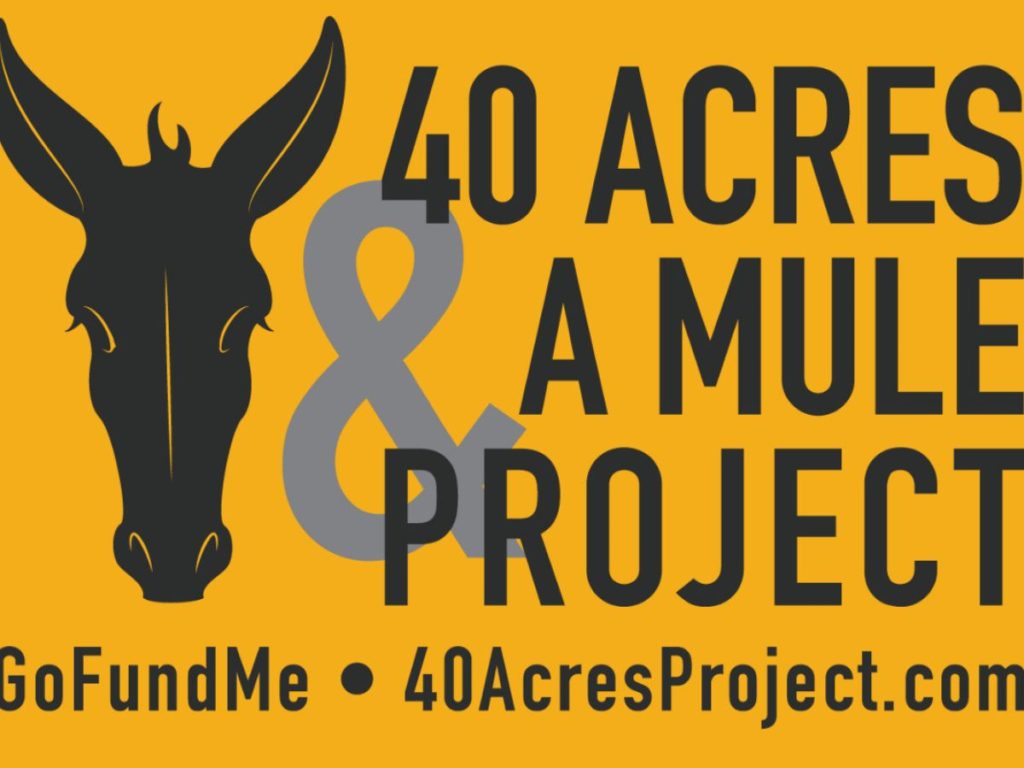
Chefs are also stepping up to address pandemic food insecurity while also tackling systemic inequality, transforming their restaurants into volunteer community kitchens. In Chicago Chef Roberto Perez of Urban Pilon, Chef Fresh Roberson of Fresher Together, Chef Karla Morales of Amor y Sofrito and Chef Kwamena of the Let Us Breathe Collective have become local pillars of the Everybody Eats Mutual-Aid Meals program, supported by the Little Village Environmental Justice Organization. In Minneapolis when the Gatherings Cafe was forced to close in March due to the pandemic, it was taken over by native chefs and started delivering free meals to elders in the Twin Cities area, featuring delicious indigenous ingredients. According to Brian Yazzie (who was also serving up native food to water protectors during the Standing Rock protest), food is medicine. Adrian Lipscome, owner of the Uptown Cafe in La Crosse, WI launched her own 40 Acres and a Mule Project in March to help reestablish the tradition of African American farming in the Driftless Region of WI, which in the 19th century hosted hundreds of black settlers that had moved north with hopes for a bright new life after the Civil War. As of Sept. this GoFund Me campaign had raised nearly $130,000 to acquire land for a just transition towards a more diverse agriculture and greater food sovereignty.
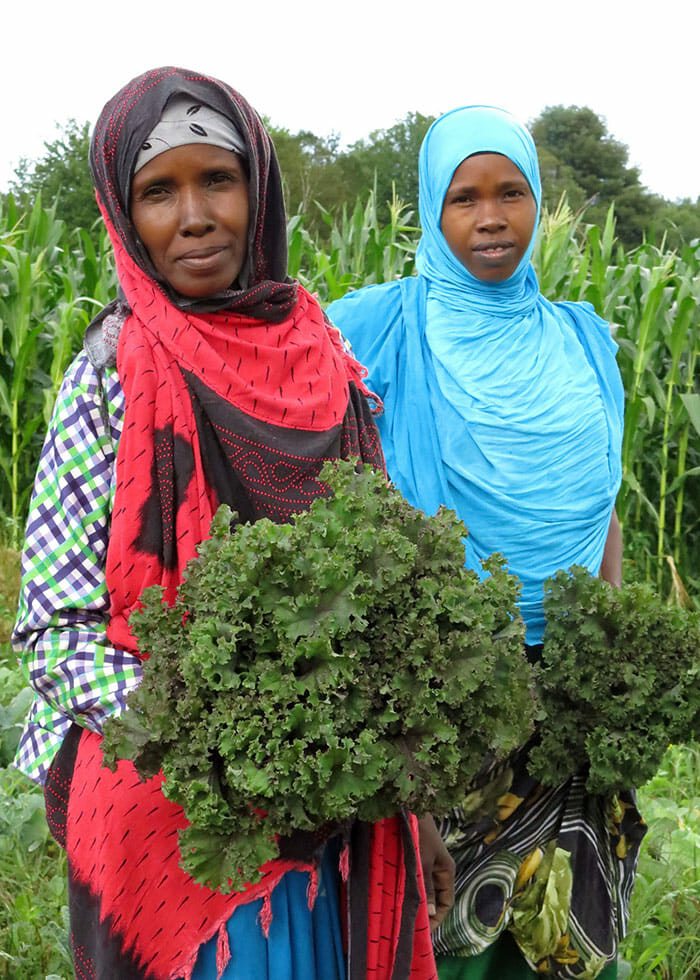
With millions of unemployed renters facing eviction (and farmers confronting foreclosure), other groups have also taken up the challenge to redistribute and decommodify land and shelter. Grassroots campaigns against speculative land grabbing are gaining steam. In Sept. the Orange County, CA Employees Retirement System (OCERS) decided to divest $64 million from the UBS AgriVest Farmland Fund, while students, staff, and faculty at many colleges across the U.S. are confronting TIAA – one of the largest pension funds and land owners in the world – on the same issue. Homeless advocates, who had been occupying fifty vacant publicly owned properties in Philadelphia for months, just declared victory as the city agreed to transfer the homes to a community landtrust under control of Philadelphia Housing Action. Immigrant farmers (90% of which are women) with the Somali Bantu Community Association recently acquired a 99 year lease to a 107 acre plot in Lewiston, ME thanks to the Agrarian Trust, with similar “Agrarian Commons” efforts underway cross ten states putting 2400 acres into the hands of marginalized farmers. On the Menominee Reservation in northern WI, the nationwide tiny homes movement is gaining fresh momentum by offering a safe transition for those recovering from domestic violence and/or substance abuse, with a unique indigenous twist – all the building materials are provided by the tribe’s own communal lumber operation, drawing from forests managed under the Seventh Generation Principle.
Even some usually “quiet” people have demonstrated amazing solidarity in this moment. When the Amish in Sugarcreek, OH heard in April from the Cleveland Clinic that there was a dangerous shortage of protective equipment at the hospital, they organized a sewing frolic and within two days produced 12,000 face masks for essential healthcare workers. Mennonite farmers were so upset by the May 25th police murder of George Floyd that they travelled to Minneapolis to participate in the Black Lives Matter protests. Mutual aid can just as easily cross borders, too. When news reached Ireland in March that native reservations in the southwest had become one of the worst pandemic ‘hot spots” in the U.S., over half a million dollars was donated by residents of the Emerald Isle to the Navajo and Hopi Families COVID 19 Relief Fund. Apparently, the Irish had not forgotten the generous $170 donation that the Choctaw Nation had made to victims of the Irish Potato Famine way back in 1847. This was reminiscent of the indigenous Sami delegation visit to Standing Rock, ND back in 2016 and their subsequent grassroots campaign that forced the Norwegian state pension fund to divest $58 million from Dakota Access Pipeline (DAPL).
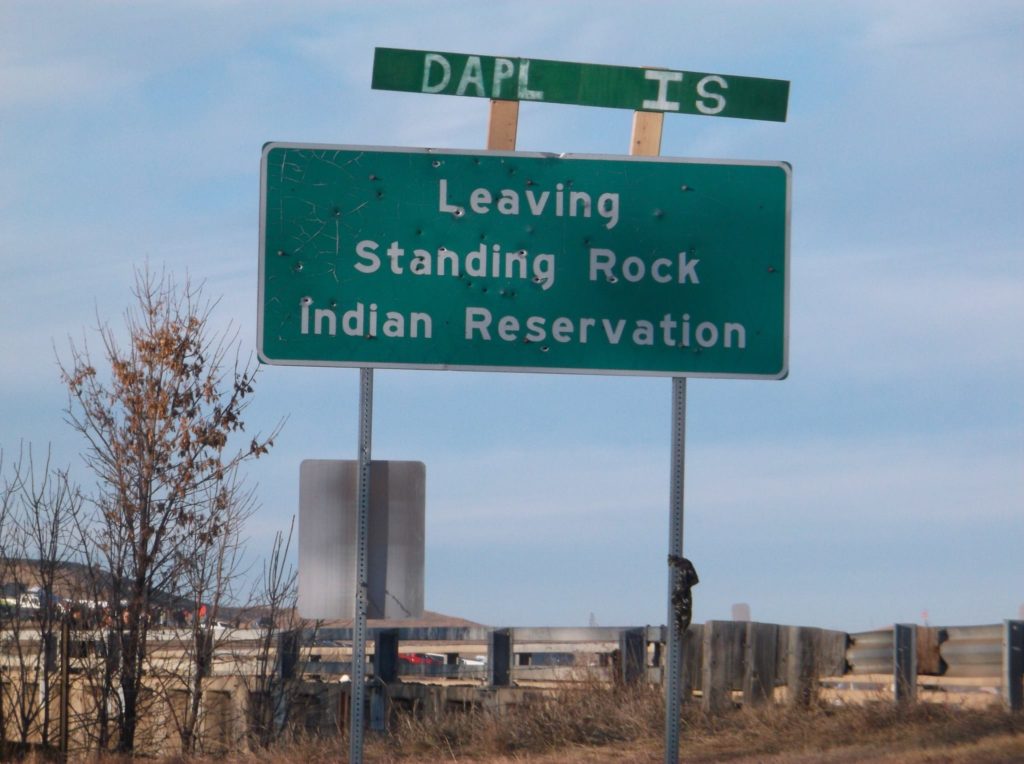
Now is not the time to fall victim to the weary “divide and rule” tactics of those who claim to have power over the rest of us. Whether you are supporting racial justice efforts to hold police accountable and shift more public funds to vital social services; whether you are pushing to end gerrymandering and resist voter suppression efforts leading up this election and beyond; whether you are preparing to join future protests against extreme fossil fuel extraction schemes and taking other actions in support of climate justice; whether you are supporting food sovereignty efforts to reclaim food as a basic human right and not leave it in the hands of the hunger industrial complex – there is a welcome home for you in this growing solidarity movement. And if you choose to join us, you may also find many old and new friends and allies along this high road towards a better world.
